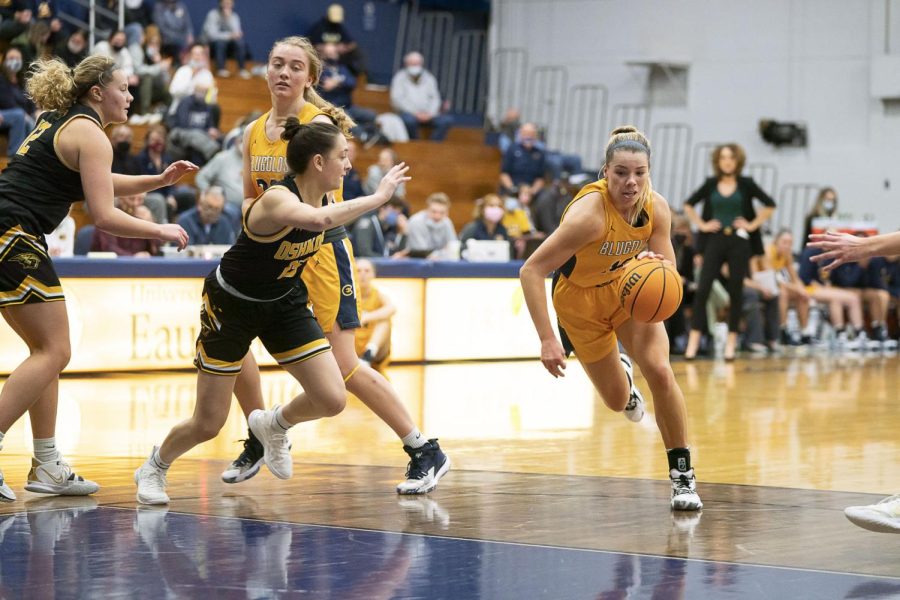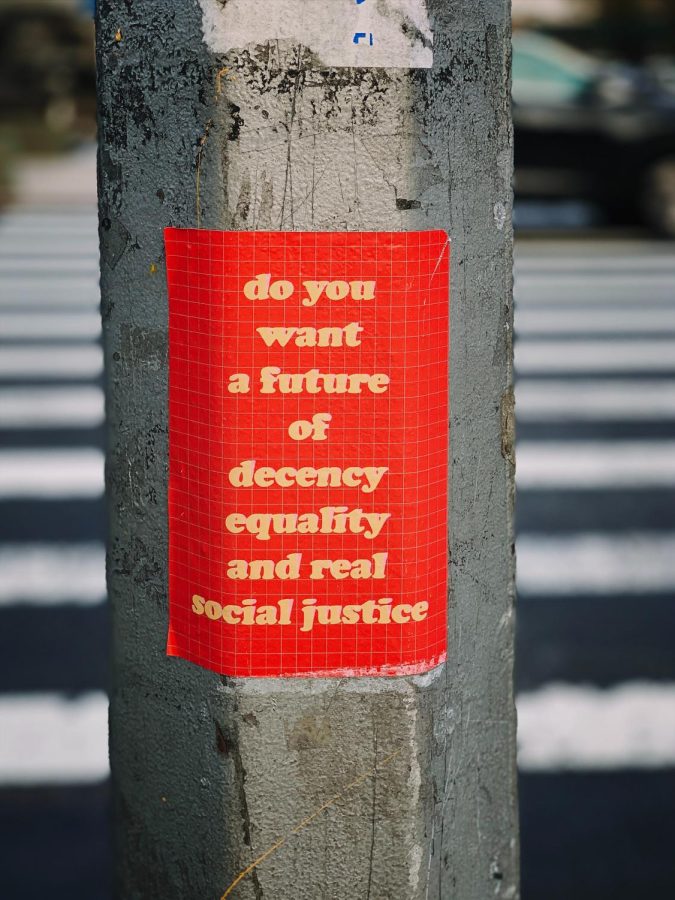Nothing in UW-Eau Claire junior Keith Cormany’s upbringing would suggest that he would become a Communist. He certainly did not inherit his political beliefs from his parents.
“My mom’s probably apolitical, perhaps leaning center, center-right,” Cormany said. “My dad is probably an
apathetic leftist.”
Born and raised in the Phoenix suburbs, Cormany and his parents moved to Eau Claire when Cormany was 15. It was around this time when he said he first heard of and learned about Communism as a high schooler.
But he said the ideas did not connect with him immediately, as he believed the notion which he had learned in those high school classes: Communism works in theory but fails in practice.
That all changed for Cormany after the 2008 election.
“I had voted for Obama in the 2008 election and then sort of became gradually disillusioned with what I saw as the lack of meaningful change and reform,” Cormany said.
Cormany, a history major, said he began reading the works of influential Communist thinkers like Karl Marx and Vladimir Lenin in 2009. He found himself agreeing with these writers, especially the theory that change is almost impossible to create within a Capitalist framework.
Eau Claire history professor Paulis Lazda has had Cormany as a student in several of his classes. He praised Cormany’s work habits and communication skills while remarking on the growth he has seen in his arguments for Communism.
“His arguments are more learned, and that learning is more likely when you’re challenged,” Lazda said. “I’m very happy to have him in my class because he brings a point of view that is not generally understood or debated very much.”
Cormany said he and Lazda have had some meaningful conversations about Communism, mainly as it relates to eastern European history. He also said Lazda’s classes have been some of the most intellectually challenging he has taken at
the university.
Both Cormany and Lazda said there are major differences between Marxism and Stalinism, differences that both feel are often overlooked when Communism is discussed. Cormany said dispelling these kinds of misconceptions is one of the major challenges of being a Communist in the current society.
“People sort of lump all the Communisms together, and so you get questions about Stalin or Mao,” said Cormany, who believes the best example of functioning Communism is the Cuban state. “I would say I’m not a fan of those two.”
Outside of the classroom, Cormany has gotten involved in several alternative groups on campus. He serves as president of the College Freethought Society and is one of the co-presidents of the Progressive Student Association. He is also the art director for The Flip Side.
Nick Warren, another PSA co-president, first met Cormany when Eau Claire alumni Jeremy Gragert spearheaded an effort to get the group back together after years of inactivity. Warren said Cormany was very comfortable being surrounded by more progressive or like-minded individuals.
“He seemed to be more energized and he wanted to push out ideas, and he wasn’t afraid to actually say those ideas because he knew he wouldn’t get ridiculed,” Warren said.
Both Cormany and Warren said no PSA meetings have been scheduled this semester and the future of the group may be in doubt.
Cormany said his years in college have helped him think more critically about his communist beliefs. Lazda said these kinds of experiences are ones he tries to bring into his classrooms and ones he feels have been missing from higher education for some time.
“I see this as my mission,” Lazda said. “I should offer students as much as I can to challenge them in their thinking, which is fairly lockstep.”
Although he is involved with these more progressive groups, Cormany is still in a minority with regards to his political beliefs. He estimates that he has met between 10-15 other self-identifying Communists while in college and understands that his
beliefs are not widely held.
But he said he has not felt left out or rejected in conversations both in and out of the classroom.
“I’m not expecting to see eye to eye on every issue with all the people I encounter,” Cormany said. “But it’s been pretty respectful.”
Cormany said he does consider himself an active follower of politics, but a lack of representation of Communist ideas has left him feeling disenchanted with the two-party system of American politics. He said he does not foresee many changes in the United States’ style of government in the near future.
After voting for President Obama in the 2008 election, Cormany said he will be supporting a different candidate this time around.
“Currently I plan to vote for the candidate Peta Lindsay who is being put forth by the Party for Socialism and Liberation,” Cormany said.
Lindsay would be ineligible for office even if she won the election, as she is only 28 years old and a person must be at least 35 years old to take the office.
He said one of the arguments he hears most frequently in regards to his voting plans is that he is throwing his vote away by casting it for someone outside the two major parties. But Cormany said he would be doing himself a disservice if he simply voted for the Democrats, the party he considers “less evil.”
Lazda said he always supports students who think for themselves. He said college should be a time to learn about yourself in an intelligent and thoughtful way, something he feels Cormany has accomplished.
“I always feel there is a certain unfounded pressure for students not to be out of the mainstream,” Lazda said. “I treasure (Cormany) and students like that particularly.”





